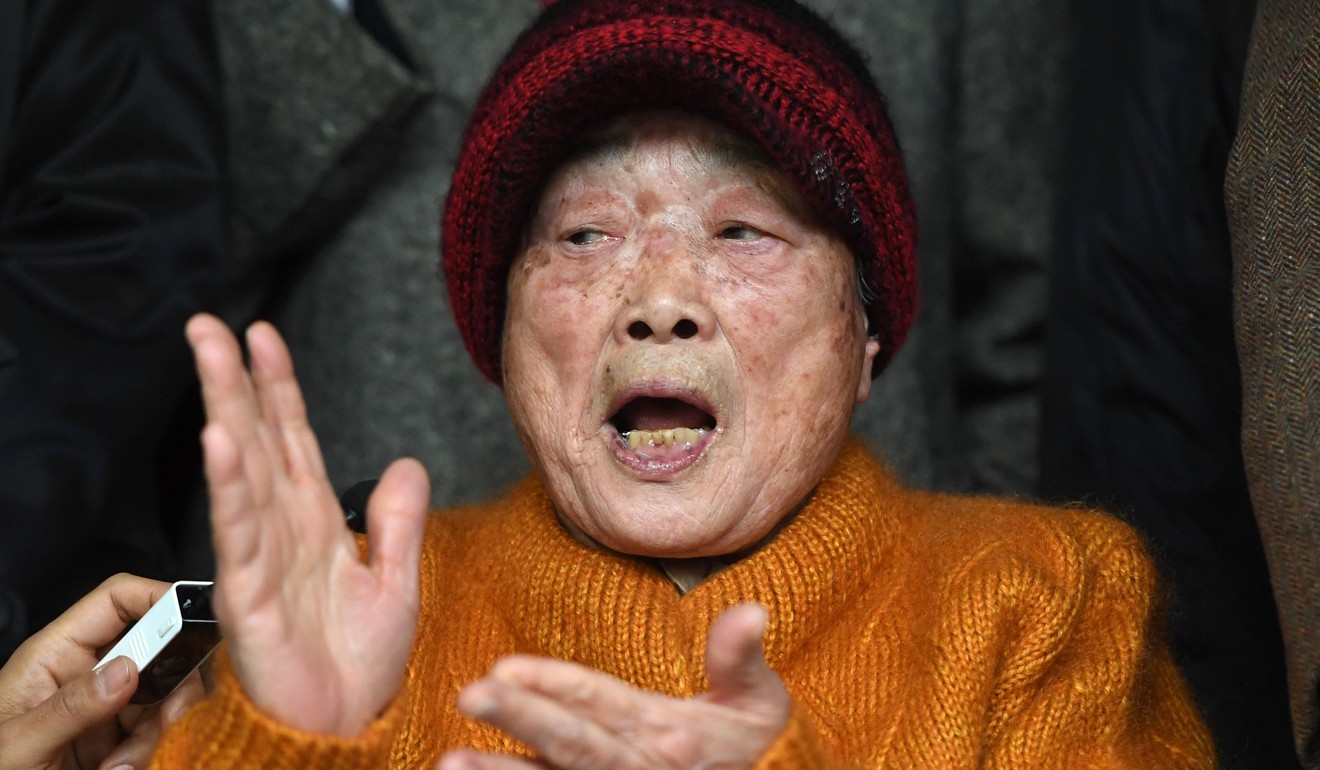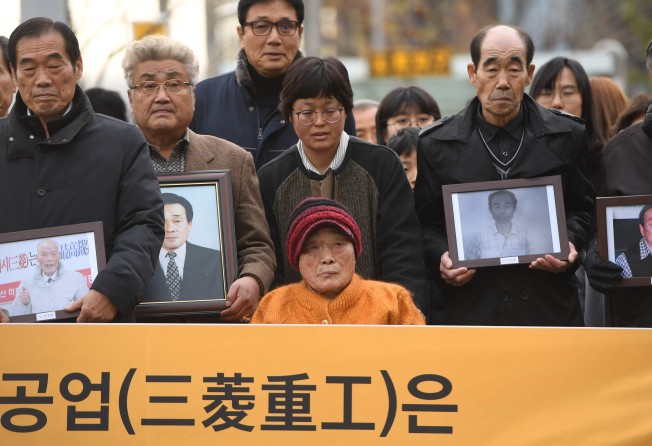
South Korea’s top court orders Mitsubishi Heavy to compensate victims of wartime forced labour
- Ruling likely to further strain ties between South and Japan, who are divided by bitter disputes over history and territory

South Korea’s top court on Thursday ordered a Japanese heavy industries giant to pay compensation over forced wartime labour – the latest in a series of decisions that would strain ties between the two neighbours.
South Korea and Japan are both democracies and US allies faced with an increasingly assertive neighbour China and the long-running threat of nuclear-armed North Korea.
But their own ties have remained icy for years due to bitter disputes over history and territory stemming from Japan’s brutal 1910-45 colonial rule of the Korean peninsula, with forced labour and wartime sexual slavery key examples.
According to official Seoul data, around 780,000 Koreans were conscripted into forced labour by Japan during the 35-year occupation, not including the women forced into sexual slavery for Japanese troops.
Among those forced to work at the factories for Japanese firms, six survivors filed a lawsuit against The Mitsubishi Heavy Industries in 2000 seeking compensation.
Seoul’s Supreme Court on Thursday upheld a lower-court ruling that the firm should pay each of the plaintiffs unpaid wages or compensation worth about 80 million won (US$71,197).

The same court, in a ruling on a similar, separate case on Thursday, also ordered Mitsubishi to pay compensation of 100 million to 150 million won to a group of five people for forced wartime labour at its plants.
Both of the two groups filed lawsuits in Seoul after Japanese courts had dismissed their claims seeking compensation.
Japan says the victims’ right to sue had been extinguished by the 1965 treaty which saw Seoul and Tokyo restore diplomatic ties and included a reparation package of about US$800 million in grants and cheap loans.
But recent court rulings in Seoul – including Thursday’s rulings – argued that the forced labour for Japanese firms was not included in the controversial treaty.
The Supreme Court late last month ordered Nippon Steel & Sumitomo Metal to pay compensation worth 100 million won (US$89,000) to four people over forced labour during the second world war – a decision that drew anger from Tokyo.
Japanese Foreign Minister Taro Kono slammed the latest rulings he described as “extremely regrettable and totally unacceptable” and demand that Seoul take “immediate actions to remedy such breach of international law”.
“Above all, the decisions completely overthrow the legal foundation of the friendly and cooperative relationship that Japan and … Korea have developed since the normalisation of diplomatic relations in 1965,” Kono said in a statement.
South Korea’s foreign ministry said in a statement that it respects the rulings, adding that it is “very concerned” about “excessive responses” from the Japanese government to judicial decisions in South Korea.
Thursday’s rulings follow an order by the top court last month that another Japanese firm compensate a group of South Koreans over wartime conscripted labour, and are almost certain to further strain ties between South Korea and Japan.